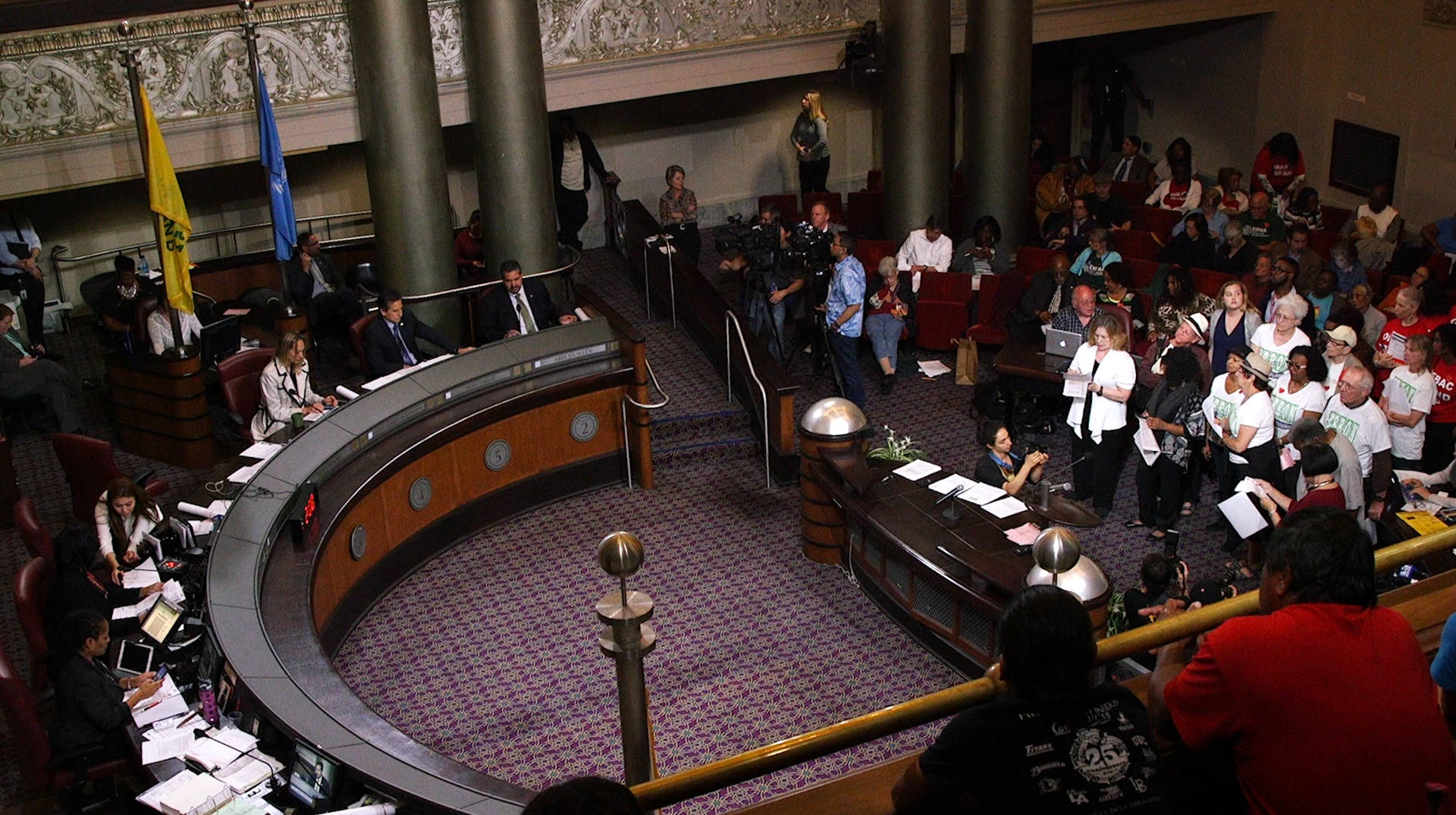The Oakland City Council, just after midnight, unanimously approved a 90-day emergency moratorium on certain rent increases for a majority of rental properties.
Hundreds of people signed up to speak over the course of a few hours last night, and one by one they lined up at the podium. First up was James Vann of the Oakland Tenants Union, where he represents renters who make up about 60 percent of the city. The organization was one of many pushing for a housing emergency declaration and a temporary halt to rent increases.
"The council is notorious for not taking serious action, especially with regards to housing issues. Tonight we want that to be different," he said. "We are tearing our community apart. We came up with the moratorium to say stop, pause, take a breath. Let's stop this madness for a while so the council has time to think."
For many, the moratorium is more of a symbolic gesture, and 90 days isn’t that much time, considering how long it takes the city to move. For example, Councilwoman Rebecca Kaplan said the city already allocated $100,000 last year to support the city’s Tenant Protection Ordinance. Kaplan asked city staff why they haven’t spent that money yet.

